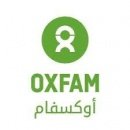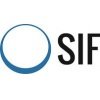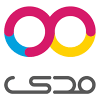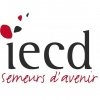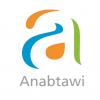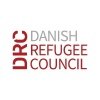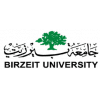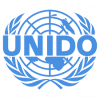Terms of Reference (ToR) for Baseline, Midline, and Endline...
Terms of Reference (ToR) for
Baseline, Midline, and Endline Assessment Consultant
AID (012590/06/1)
Introduction
The purpose of this Terms of Reference (ToR) is to outline the scope, responsibilities, and deliverables for a consultant who will be responsible for conducting the baseline, midline, and endline assessments for the “IBTKAR for Social Change “project. This project aims to strengthen the social, economic, and environmental resilience of agricultural entrepreneurs and of Social and Solidarity Economy (SSE) actors in selected communities across the West Bank, East Jerusalem, and the Gaza Strip. The consultant will be expected to conduct rigorous assessments at different stages of the project to measure its progress toward achieving the desired outcomes.
project background
Funded by the Italian Agency for Development Cooperation (AICS), the three-year IBTKAR Project (Dec 2022 – Nov 2025) is implemented by a consortium of Palestinian and Italian partners with Oxfam Italy as lead implementing agency.
IBTKAR Project stems from the desire to strengthen the social, economic, and environmental resilience of agricultural entrepreneurs and of Social and Solidarity Economy (SSE) actors in the West Bank, East Jerusalem, and Gaza Strip through innovative and sustainable solutions in the post-Covid-19 era (Specific Objective). In this way, the Project aims to contribute to foster a lasting, inclusive, and sustainable economic growth, full and productive employment, and decent work in Palestine (General Objective).
To this end, the Project is adopting a holistic approach, working on three levels: MICRO, through financial and technical support to micro, small and medium enterprises in the agricultural sector and to Social and Solidarity Economy operators; MESO, through strengthening (financial and technical) structures to support small agricultural producers; MACRO, for a legislative, but also cultural and social framework, in favor of financial inclusion and of Social and Solidarity Economy. The macro level will also foresee activities at the international level, to uphold Palestinians' socio-economic rights.
The Project is rooted in the concept of innovation, in Arabic IBTKAR. Innovation is a guiding concept for the whole action, pursued through:
Financial services offered by the partner microfinance institutions. These instruments will be more flexible, tailored to the needs of the target groups and will follow a value chain financing approach.
Accompanying services to credit beneficiaries customized and focused on the development of managerial and marketing skills, as well as on the introduction of gender and environmental justice principles.
Business models based on the values of the SSE, i.e. human dignity, social and gender justice, environmental and ecological sustainability, democracy, and cooperation.
Tools and toolkits designed according to the real needs of the target groups, and to the specific economic, political, social and cultural context and shared in dedicated training sessions.
Objectives of the assignment
Oxfam is looking for a consultant with solid experience in conducting assessments and evaluations to carry out the following assessments at different stages of the project to measure the project’s progress towards achieving the desired outcomes.
3.1. Baseline Assessment: The baseline assessment aims to:
Update the baseline values of the project outcomes indicators. These values will be used as a benchmark against which the project's progress will be measured.
Assess the reasonableness of each indicator's target.
3.2. Midline Assessment: This assessment aims to:
Measure the changes that have occurred on project objective/outcomes’ indicators since the baseline assessment.
Identify the progress made by the project halfway through its implementation.
3.3. Endline assessment
The endline assessment aims to measure the overall achievements of the project against its original targets. This assessment specific objectives include:
Conduct a thorough analysis of the changes in objective/outcomes indicators compared to the baseline and midline assessments.
To assess the extent to which the project has achieved its intended outcomes and targets.
Scope of work
The consultant's scope of work will include, but not be limited to:
Timeframe
August - September 2023
Summer-Autumn 2024
October 2025
Assessment
Baseline assessment
Midline assessment
Endline assessment
Main tasks
· Reviewing relevant project documents to gain an understanding of the project's context and objectives.
· Developing a comprehensive baseline assessment framework, including data collection methodologies.
· Conducting data collection activities (remotely/ in field/Hybrid) to gather baseline data from project targeted people, stakeholders, and official statistics.
· Analyzing, interpreting the collected data, and establishing baseline values of project outcomes indicators.
· Reviewing the baseline assessment report and project progress reports.
· Developing a midline assessment framework, building on the baseline framework, and adapting it to the current stage of the project.
· Conducting data collection activities (remotely/ in field/Hybrid) to gather project data.
· Analyze the changes in project outcomes indicators compared to the baseline assessment.
· Developing an endline assessment framework, building on the previous frameworks, and adapting it to the final stage of the project.
· Conducting data collection activities (remotely/ in field/Hybrid) to gather project data.
· Measure the achievement of project outcomes and targets.
· Analyze the changes in project outcomes indicators compared to the baseline and midline assessments.
Assessment Targeted communities
25 communities out of the list : Bani Na'im; Al-Rehiyah; Yatta; Awarta; Zeta - Jam'ain; Deir Balout; Salfit; Kufr Ad-Dik; Mardah; Deir Ghassaneh; Deir As-Sudan; Shofa; Fara'un; Kufr Al-Labad; Saida; Kufr Jamāl; Qabalan; Kufr Qaddum; Azzun; Beit Furik; Roujib; Aqraba; Qaryut; Asira Al-Qibliyah; Asira Ash-Shamaliyah; O’reef; Talfeet; Beta; Burin; As-Sawahra; Jiftlik; Jericho; Al-Auja; Ein Al Bayda; Tamoun; Burqin; Maythaloon; Rafaat/Jenin; Beit Doko; Khan Yunis; Rafah.
The same communities that have been assessed in the baseline assessment.
The same communities that have been assessed in the baseline and midline assessments.
Indicators to be assessed by the consultant
· GO1. Targeted community unemployment rate, by gender and age group.
· GO1. Targeted community unemployment rate, by gender and age group.
· GO1. Targeted community unemployment rate, by gender and age group.
· GO2. Targeted community agriculture, forestry, fishing, - value added (% of GDP)
· GO2. Targeted community agriculture, forestry, fishing, - value added (% of GDP)
· GO2. Targeted community agriculture, forestry, fishing, - value added (% of GDP)
· SO1. Proportion of young people (aged 15-24) not in education or training and not working in targeted communities.
· SO1. Proportion of young people (aged 15-24) not in education or training and not working in targeted communities.
· SO1. Proportion of young people (aged 15-24) not in education or training and not working in targeted communities.
· SO2. Proportion of women in management positions in SMEs and SSE operating in targeted communities.
· SO2. Proportion of women in management positions in SMEs and SSE operating in targeted communities.
· SO2. Proportion of women in management positions in SMEs and SSE operating in targeted communities.
· R1.2 Percentage of targeted enterprises in targeted locations accessing financial services
· R1.2 Percentage of targeted enterprises in targeted locations accessing financial services
· R1.2 Percentage of targeted enterprises in targeted locations accessing financial services
· R1.3. Percentage of people receiving legal aid in case of demolition, land confiscation, and forced displacement in the targeted locations.
· R1.3. Percentage of people receiving legal aid in case of demolition, land confiscation, and forced displacement in the targeted locations.
· R1.3. Percentage of people receiving legal aid in case of demolition, land confiscation, and forced displacement in the targeted locations.
Indicators to be assessed by the project team and provided to the consultant to analyze the changes in project outcomes
· R 1.1. Number of rural enterprises accessing technical support services within the project
· R 1.1. Number of rural enterprises accessing technical support services within the project
· R.2.1. Number of financial service providers supported in the provision of outreach strategies, products and financial services
· R.2.1. Number of financial service providers supported in the provision of outreach strategies, products and financial services
· R.2.2. Number of participants in programs managed by the SSE network
· R.2.2. Number of participants in programs managed by the SSE network
· R.2.3. Number of multi-stakeholder platforms supported
· R.2.3. Number of multi-stakeholder platforms supported
· R.3.1. Number of advocacy initiatives with international and national policy makers to improve ICESCR and IHL implementation levels in Palestine.
· R.3.1. Number of advocacy initiatives with international and national policy makers to improve ICESCR and IHL implementation levels in Palestine.
· R 3.2. Number of completed policy products - IFAD RIMS policy
· R 3.2. Number of completed policy products - IFAD RIMS policy
Methodology
The consultant must employ a rigorous and systematic methodology to conduct the baseline, midline, and endline assessments, taking into account the utilization of official statistics. The methodology must be designed to ensure comprehensive data gathering and accurate calculation of figures related to the targeted communities. The following key elements will be included in the methodology:
5.1. Data Collection Methods:
Utilization of Official Statistics:
For the indicators “G1, G2, SO1” the consultant should gather relevant official statistics from the Palestinian Central Bureau of Statistics, which will serve as a primary data source for population figures, labor force figures, unemployment rate, agriculture value added as a percentage of GDP, and other relevant indicators pertaining to the targeted communities.
For the indicator “R1.3” the consultant should gather relevant official statistics from the Palestinian Central Bureau of Statistics and OCHA official data. Both will serve as a primary data source for population figures and number of people needed legal assistance following Israeli violations.
For the indicator “R1.2” the consultant should gather official statistics from ACAD and Reef Finance which will serve as a primary data source for the number of targeted enterprises in targeted locations accessing financial services.
Primary data collection:
For the indicator “SO2” the consultant should gather the relevant data from the 34 economic actors and SSE and 34 non-targeted SMEs and SSE operating in targeted communities, which will serve as a primary data source for total number of employees in the 2 groups and the number of women in management positions.
5.2. Calculation Methods:
Adjustments and Projections: In cases where official statistics do not provide specific figures or when there are gaps in the data, the consultant will employ appropriate calculation methods to estimate and project the relevant figures. These methods may include proportional allocation, extrapolation, or trend analysis based on available data. The consultant must indicate his calculation methodology in the technical proposal.
Local-Level Data: Where possible and when needed, the consultant might collect additional data at the local level through primary data collection methods, such as key informant interviews to complement and validate the official statistics. This data will help refine and validate the estimated figures and ensure their accuracy for the targeted communities.
Difference-in-Differences (DID) Methodology: The consultant will apply the DID methodology to assess the causal impact of the project on SO2 indicator. This methodology involves comparing the change in the indicator between the intervention group (exposed to the project intervention) and the control group (not exposed to the intervention) over time.
5.3. Data Analysis:
The consultant must employ appropriate statistical analysis techniques to analyze the integrated data. This analysis will provide insights into the project's outcomes, changes over time, and the relationship between variables of interest.
Additionally, the consultant must conduct a rigorous DID analysis using appropriate statistical techniques. This analysis will involve comparing the changes in the SO2 indicator between the treatment and control groups, both before and after the project intervention. The DID estimator will provide an estimate of the project's causal effect on the proportion of women in management positions in SMEs and SSE operating in targeted communities.
5.4. Quality Assurance:
This is a one assignment that will be implemented across 3 different stages of the project. Therefore, to ensure the comparability of data between the baseline, midline, and endline assessments, the consultant must implement robust quality assurance measures to ensure the consistency, accuracy, and reliability of data collection and analysis throughout the three phases. The consultant must establish clear guidelines and a data collection framework to ensure uniformity in the collection and the calculation processes.
Also, to ensure consistency in the analytical approach and facilitate meaningful comparisons between the assessments, the consultant must develop a standardized data analysis plan that outlines the specific analysis techniques, software, and procedures to be used across all three phases.
5.5. Reporting:
The consultant will prepare assessment reports that list the indicators and their measured values for each phase (baseline, midline, and endline), ensuring consistency in reporting structure and presentation. The reports should clearly document the data collection and analysis methods employed; the calculation methods used to estimate figures for the targeted communities. Moreover, the report must highlight the measures taken to ensure consistency and quality. Any deviations encountered during the process will be transparently reported. The reports should present the analysis findings, conclusions, and any limitations or challenges encountered during the assessment process.
The reports should also include visual representations of data, such as charts or graphs, to facilitate understanding. The assessment results should be reported accumulatively and disaggregated by the community. For relevant indicators, data should also be disaggregated by gender and age group.
The consultant shall render a first draft of each report to Oxfam and partners for comments. Oxfam will give feedback on draft reports and the consultant will then have to finalize the reports based on this within 10 days of receiving comments.
INDICATIVE timeline
The assessments will be conducted over three distinct phases: baseline, midline, and endline. A total of 50 working days are expected from the consultant under the three phases. The following timeline provides an overview of the expected duration for each phase:
The baseline assessment phase will commence on August 24, 2023, and is anticipated to be completed with an approved baseline report by October 5, 2023. This phase will include the inception and workplan report. A total of 20 working days is expected from the consultant under this phase.
The midline assessment will be conducted in the summer-automn of 2024. A total of 15 working days is expected from the consultant under this phase.
The endline assessment phase will begin on October 1, 2025, and is expected to be finalized with an approved endline report by October 25, 2024. A total of 15 working days is expected from the consultant under this phase.
Please note that the timelines provided above are subject to adjustments based on project needs and considerations. The consultant is expected to adhere to the agreed-upon schedule and ensure timely completion of each assessment phase.
The assessment’s success relies on maintaining consistency throughout the data collection and analysis process over the three phases. To uphold this consistency, the consultant is expected to apply similar methodologies and tools, especially when assessing comparable indicators across the different assessment points. Additionally, the inception report's timely submission will facilitate early alignment and collaboration, contributing to an efficient and effective assessment process.
Deliverables
The consultant is liable for the following deliverables which must be submitted in English:
An inception report: The consultant will be required to develop an inception report at the beginning of the assignment to provide an overview of their methodology and assessment plan. This report will serve as a preliminary document that allows Oxfam and partners to review and assess the consultant's proposed approach before commencing the actual assessments. The consultant should submit the inception report within a week from the contract commencement date. Upon receipt, Oxfam and partners will review the report and provide feedback within 4 working days. The consultant will then be required to address the feedback and finalize the inception report within 2-3 days. The inception report should be approved by Oxfam before his/her proceedings with the assessment activities.
A comprehensive baseline assessment report, including timeline of assessments, data analysis and findings.
A midline assessment report, highlighting the project's progress and identifying any necessary adjustments.
An endline assessment report, presenting the project's overall impact and sustainability, along with actionable recommendations for future initiatives.
Data sets and raw data collected during the assessments, appropriately organized and documented.
Responsibilities of the consultant
The consultant is required to:
Take the responsibility for the assessments and appoint a person as the contact point with Oxfam for all the liaison and coordination.
Compose the assessments team that is capable to deliver the output of required quality in time and mention the team composition in his / her proposal.
With the support from Oxfam, make necessary appointments for the key informant interviews, mobilize participants, including direct beneficiaries where needed. All communication and coordination in the country for collecting data should be the consultant’s responsibility.
Manage all the logistics to collect the needed information.
Ensure that all the Consultant’s personnel are following the Code of Conduct and the policies of Oxfam and a declaration to this effect is signed by them.
Submit the deliverables (mentioned under item 7 above) on time, and,
Maintain the confidentiality of all information gathered. (Prior to undertaking, the consultant will have to declare that the information gathered would not be used for a purpose other than for those stipulated in the ToR.
Responsibilities of Oxfam
As the organization commissioning the Assessment, Oxfam will:
Provide all the relevant documentation and project reports for the assessments’ purpose.
Hold the responsibility for the provision of feedback / comments for inception report, data collection tools, calculation methodology, data analysis methodology, and draft reports.
Provide the templates for reporting and financial settlements.
Make necessary arrangements for meetings and presentation whenever required.
Review the timeline of assessments and make necessary amendments in consultation with the consultant, and
Provide payments to the consultant as per the agreed schedule upon completion of minimum requirements.
DESIRED QUALIFICATIONS, SPECIALIZED KNOWLEDGE and expertise
The consultant should demonstrate a track record of conducting similar assessments and possess the necessary technical expertise, research skills, stakeholder engagement capabilities, and knowledge of holistic approaches to ensure the successful implementation of the assessments within the project's multi-level framework. To effectively conduct the assessments, the consultant should possess the following experience and qualifications:
Strong background and expertise in conducting assessments and evaluations related to the agricultural sector, social and solidarity economy, and financial inclusion.
In-depth knowledge of the Palestinian context and the socio-economic challenges faced by small agricultural producers and social and solidarity economy operators.
Proficiency in designing and implementing mixed-methods research, including quantitative and qualitative data collection and analysis.
Experience in developing and applying robust evaluation frameworks, indicators, and tools to measure program impact and outcomes.
Ability to triangulate and analyze data from multiple sources, including official statistics, surveys, interviews, and focus group discussions.
Proficiency in producing high-quality assessment reports, including clear analysis, findings, conclusions, and actionable recommendations.
Strong written and verbal communication skills to effectively convey complex information to diverse audiences.
Explanatory Session for Interested Applicants
To provide potential consultants with a clearer understanding of the assignment requirements and expectations, an online explanatory session will be conducted using Zoom or MS Teams. The session aims to address any questions or concerns regarding the TOR and the assessment assignment. The session will be conducted after one week of advertising the TOR.
Interested consultants must register to participate in the explanatory session. To register, interested consultants should send an email to [email protected] expressing their intent to attend the session. In the email, please provide your name, contact information, and the name of your consulting firm (if applicable). registered participants will receive a confirmation email containing the access details and instructions for joining the session. The email will include the online meeting link and any additional information necessary to connect to the session.
Attendance at the explanatory session is not mandatory but highly encouraged for those considering submitting a proposal. The session provides an opportunity for potential consultants to obtain additional information, seek clarifications, and gain insights into the project requirements. The session aims to ensure that potential consultants have a comprehensive understanding of the assignment, enabling them to develop informed and robust proposals that address the project's objectives effectively.
Please note that specific timing and agenda details will be communicated to registered participants closer to the session date.
Evaluation of proposals and selection process
Potential and interested firms are required to submit a comprehensive proposal describing / articulating the work requirements outlined in this ToR. The professional and language proficiency of the proposed personnel are important to indicate in the proposal. All proposals will be evaluated based on internally agreed criteria as follows:
(Weight for each criterion given in percentages)
Specific and extensive expertise in conducted similar assessments (at least the Team Leader) (10%).
Proposed team / personnel which includes composition of the team and their educational qualification and experiences as articulated in the desired qualifications section above. (15%).
Methodology and work plan which includes approach, data collection methodology, calculation method, data analysis techniques, quality assurance measures, work plan and timeframe etc. (35%).
Quality of presentation of proposal (10%).
Financial proposal (30%).
70% of weight will be given to technical proposal and 30% of weight will be given to financial proposal. The applicant should score a minimum of 50% in the technical evaluation to be eligible for financial evaluation.
Terms and conditions
Payment will be on submission of Tax-exempt Invoice on delivery against milestones. All incidentals, equipment and materials, accommodation and travel required for the assignment are the responsibility of the consultant and need to be included in the financial proposal. The consultant should follow the Oxfam’s Branding policies and ensure Oxfam and donor logos are presented as per the guidelines. The consultant and his / her team in the assignment must abide by Oxfam child protection policy, code of conduct, sexual harassment policy and Oxfam’s other relevant policies. All requirements in respect of insurance including professional indemnity, worker’s compensation, public liability, superannuation and taxation, where applicable will remain, at all times, the responsibility of the consultant.
The Financial proposal should contain the following information:
Budget breakdown: prices should be valid for 120 days from the date of submission.
The submitted offers should be in Euro including VAT. The tendered should be able to issue an official invoice in addition to a valid deduction at source certificate or will deduct a percentage from the final payment (according to the Palestinian Taxation department & laws.
Prices include all types of expenses such as transportation per-diem, calls, … etc.
SUBMISSION PROCESS
Interested consultants should submit letter of interest, technical proposal, and financial offer no later than August 25, 2023, to the attention of OPT–Jerusalem Procurement [email protected]
The proposal should include the following:
Technical offer/proposal including a preliminary causal approach, design, methodology, and timeline.
CV of the consultant(s) including list of similar works with a cover letter.
Detailed budget on a separate sheet.
All docs are requested in English.




